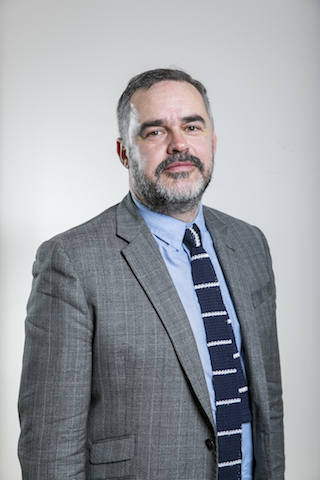It’s time to get our hands dirty
Our job is about more than ensuring fair play once decisions have been taken, we need to influence the big decisions themselves.

I gave my first media interview in this job around the time of Patricia Hewitt’s shakeup of primary care trusts in 2005-6. MiP had just been launched. The then HSJ editor asked me how the union could stop the re-organisation going ahead. My answer focused on what MiP was doing to support our members through the process. The write-up suggested this sounded like mopping up in the abattoir after the slaughter.
Not a pleasant image – especially when used to describe a group of public servants I admire and respect – but it was a fair one. I’ve often thought about it, and concluded that no effective defence of our members’ interests and values can be narrowly based on individual representation and management networking. MiP evolved quickly after the Hewitt reforms. An organisation designed primarily for individual representation also found itself seeking to represent members collectively. On that occasion we couldn’t influence the big decision, but we negotiated an HR framework that prevented many problems and injustices for individual members.
We took the next evolutionary step during the coalition government. The scope of our collective negotiations expanded to include pensions and pay – with members taking industrial action on both issues – as both employers and unions sought to ensure the views of senior staff were properly represented.
Into the political sphere
But it was Andrew Lansley’s Health and Social Care Bill that propelled MiP into the political sphere in a new way. Our conclusion that the Lansley plans were unworkable led us to oppose the legislation. No-one can say now – the evidence is everywhere to see – that we were wrong. But it was a shift in our approach over which we agonised long and hard, and which made some members feel uncomfortable.
We decided that our job was about more than ensuring fair play once the big decisions had been taken – we needed to try to influence those big decisions themselves.
Following the Brexit referendum, the election of Donald Trump and the growth of populism in Europe and America, we need to ask where the big decisions are now being taken, and how we can realistically try to influence them and get our members’ voices heard.
Few people can seriously question whether these developments affect MiP members as public servants, employees and members of our wider society. Brexit has profound implications for workforce supply, regulation and the long-term economic sustainability of publicly-funded healthcare. Given the potential economic consequences of Brexit, we should remember that the new money promised for the NHS is as yet unfunded and ignores social care.
Refighting battles
The election of President Trump has turbo-charged people who want to reverse so many of the changes we have seen in politics and society over the last century, especially progress with diversity, inclusion and the environment. It feels as though we must re-fight battles over equality and science, which I thought had been won. And 21st century populism – a digital phenomenon as much as anything – has created public discourse that tends towards simplistic expression of issues and problems that are often immensely complex.
This approach to politics, for example, leaves the NHS – and its managers – vulnerable to evidence-free attacks, from right, left and centre. Such attacks can be triggered at great speed: a single tweet can go around the world in a few hours.
As a union, we need to debate our response to these trends, and think again about how we present our ideas and arguments. Our summit on 6 November will attempt to do that by focusing on Brexit, long-term funding and the key values of the NHS across the UK. I believe we can deliver an effective response without unbalancing our work for individual members or collective negotiations. I also believe we can do it through the clear presentation of values and evidence.
Finally, we must not fear being accused of grandstanding. The ‘MiP way’ – our approach of challenge and support – is more important than ever, and we will keep it up. But I hope you agree with me that we now need to bring our voice into a wider political context than before. Otherwise mopping up might be the best we can hope for.
Related News
-

Strange ways, here we come
Creating a ‘neighbourhood NHS’ will demand a different mindset, unfamiliar ways of working and difficult decisions on finances and staffing. Middle managers as well as senior leaders will play a big part in making it happen, writes Nigel Edwards.
-

Labour’s reforms: a mixed bag for managers
Ahead of the ten-year plan, Wes Streeting and NHS leaders have been sketching out some ideas for NHS reform. Jon Restell and Rhys McKenzie explain what these initial proposals could mean for managers.
-

Jon Restell’s Leading Edge | Giving managers legitimacy is the key to making reform work
The false trade off between the frontline and everybody else has become a deep-seated belief in a two-tier workforce. The health secretary needs to unite all NHS staff and give managers permission, encouragement and the tools they need to get his reforms off the ground.